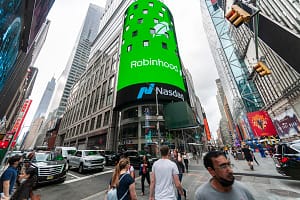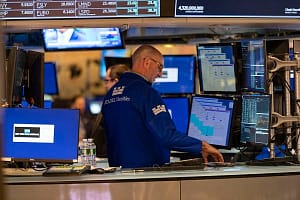The FTSE 100 is on the cusp of finally hitting its pre-pandemic levels, nearly two years after the global market crash of February 2020.
This has been a long time coming and somewhat embarrassing for the UK’s market reputation because the Nasdaq Composite in the US managed to claw back all its Covid-related market losses in just a matter of months – by 2 June 2020 it was trading ahead of the pre-pandemic levels.
The magic number for the FTSE 100 to surpass is 7,403.92 which is the market closing price on Friday 21 February 2020. When the market opened the following Monday, it began a dramatic fall which saw the FTSE 100 slump 30% by 20 March 2020 to hit a post-covid trough of 5190.78.
While the rebound was initially impressive, by June the rally has lost its momentum and it wasn’t until the first Covid vaccines were announced last November that it started to motor again.
“A key reason why the FTSE 100 has found it so hard to recover all the lost territory is the type of stocks that have the biggest influence on the index’s performance. The FTSE 100 is market-cap weighted so the largest companies really matter when it comes to how the index moves,” ,” says Russ Mould, investment director at AJ Bell.
“Names like HSBC and Unilever are in this camp and they’ve limped along. Royal Dutch Shell is also a big name in the index and its shares only started to move upwards 12 months ago, so it is still playing catch-up.
“Since the February global market crash there have still been some impressive recovery stories. The best performer is Royal Mail, up 143% in share price terms since the 21 February 2020 market close. That’s down to the rapid acceleration of people and businesses buying stuff online. Royal Mail has seen a step-change in parcel delivery volumes, and it thinks this will remain and not simply be a one-off pandemic phenomenon.
“The second-best performer is Ashtead which has benefited from the US economic recovery where it rents out construction equipment. Its shares are up 135% over the period.
“The worst performer in the FTSE 100 index is British Airways owner International Consolidated Airlines, down 60% on a mixture of ongoing operational disruption linked to travel restrictions, debt pressures and having raised a large sum of money at a heavily discounted share price.
“Judging by Thursday’s rally, it looked as if we would hit the magic 7,403.92 level on Friday but so far that has not happened. In fact, an initial boost on the last trading day of the week quickly turned into disappointment with the FTSE 100 falling 0.3% to 7,360 in the first hour of trading thanks to AstraZeneca’s third quarter profit missing expectations and commodity producers having a bad day.”






Leave a Comment